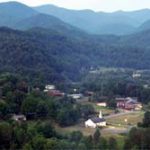|
|
New Video on Collaboration for Infrastructure FinancingBy Rick MorsePublished August 9, 2011
The fiscal climate for local governments (rural communities in particular) is daunting. Local governments are in a state of fiscal crisis and the long term forecast is not encouraging. Many use the term the “new normal” to express the sentiment that the “good ‘ol days” where state and local governments could adequately finance all their needs are never coming back. Hard choices have been made and are being made that have significant long-term consequences. Problems can alternatively be viewed as opportunities, however, and the “new normal” does indeed present an opportunity–an opportunity to approach problems differently, to think outside the box, and innovate in ways that perhaps were not realistic politically (or otherwise) in the past. One of the primary ways local governments are innovating is in creating partnerships with the private and not-for-profit sectors as well as with other governments. These creative collaborations leverage the assets of various partners to create public value where it could not have been created by any one of the partners acting alone. A great example of this kind of partnership in a rural community was the development of a wastewater treatment facility in Whittier, North Carolina. Jackson County, the Eastern Band of Cherokee Indians, the Tuckaseigee Water and Sewer Authority, and The Church of God (Whittier), along with the NC Rural Center and other funders, partnered to make a wastewater facility in Whittier possible. The project addressed a significant need and also opened up economic development opportunities. The complex collaboration was facilitated through the collaborative leadership of Bill Gibson and the Southwestern Commission (regional council of governments) that he directs. I have shared this story elsewhere in print, and have recently completed a project that allows the story of how this partnership came together and some of the lessons learned to be shared by the stakeholders themselves in a new video on the School of Government’s YouTube site. This video, produced by the Local Elected Leaders Academy and funded by the generous support of Food Lion, offers many insights into the value of innovative partnerships like this and the challenges they face. This project faced many obstacles and setbacks and continues to face some challenges in implementation. But the desire of the stakeholders to work together to make it happen, along with the deft facilitative leadership of the Southwestern Commission, helped see this through, despite the challenges. I hope you’ll take a minute to watch the video and let me know what you think. |
Published August 9, 2011 By Rick Morse
 Rick Morse is a School of Government faculty member.
Rick Morse is a School of Government faculty member.
The fiscal climate for local governments (rural communities in particular) is daunting. Local governments are in a state of fiscal crisis and the long term forecast is not encouraging. Many use the term the “new normal” to express the sentiment that the “good ‘ol days” where state and local governments could adequately finance all their needs are never coming back. Hard choices have been made and are being made that have significant long-term consequences.
Problems can alternatively be viewed as opportunities, however, and the “new normal” does indeed present an opportunity–an opportunity to approach problems differently, to think outside the box, and innovate in ways that perhaps were not realistic politically (or otherwise) in the past. One of the primary ways local governments are innovating is in creating partnerships with the private and not-for-profit sectors as well as with other governments. These creative collaborations leverage the assets of various partners to create public value where it could not have been created by any one of the partners acting alone.
A great example of this kind of partnership in a rural community was the development of a wastewater treatment facility in Whittier, North Carolina. Jackson County, the Eastern Band of Cherokee Indians, the Tuckaseigee Water and Sewer Authority, and The Church of God (Whittier), along with the NC Rural Center and other funders, partnered to make a wastewater facility in Whittier possible. The project addressed a significant need and also opened up economic development opportunities. The complex collaboration was facilitated through the collaborative leadership of Bill Gibson and the Southwestern Commission (regional council of governments) that he directs.
I have shared this story elsewhere in print, and have recently completed a project that allows the story of how this partnership came together and some of the lessons learned to be shared by the stakeholders themselves in a new video on the School of Government’s YouTube site. This video, produced by the Local Elected Leaders Academy and funded by the generous support of Food Lion, offers many insights into the value of innovative partnerships like this and the challenges they face. This project faced many obstacles and setbacks and continues to face some challenges in implementation. But the desire of the stakeholders to work together to make it happen, along with the deft facilitative leadership of the Southwestern Commission, helped see this through, despite the challenges. I hope you’ll take a minute to watch the video and let me know what you think.
Author(s)
Tagged Under
This blog post is published and posted online by the School of Government to address issues of interest to government officials. This blog post is for educational and informational Copyright ©️ 2009 to present School of Government at the University of North Carolina. All rights reserved. use and may be used for those purposes without permission by providing acknowledgment of its source. Use of this blog post for commercial purposes is prohibited. To browse a complete catalog of School of Government publications, please visit the School’s website at www.sog.unc.edu or contact the Bookstore, School of Government, CB# 3330 Knapp-Sanders Building, UNC Chapel Hill, Chapel Hill, NC 27599-3330; e-mail sales@sog.unc.edu; telephone 919.966.4119; or fax 919.962.2707.

